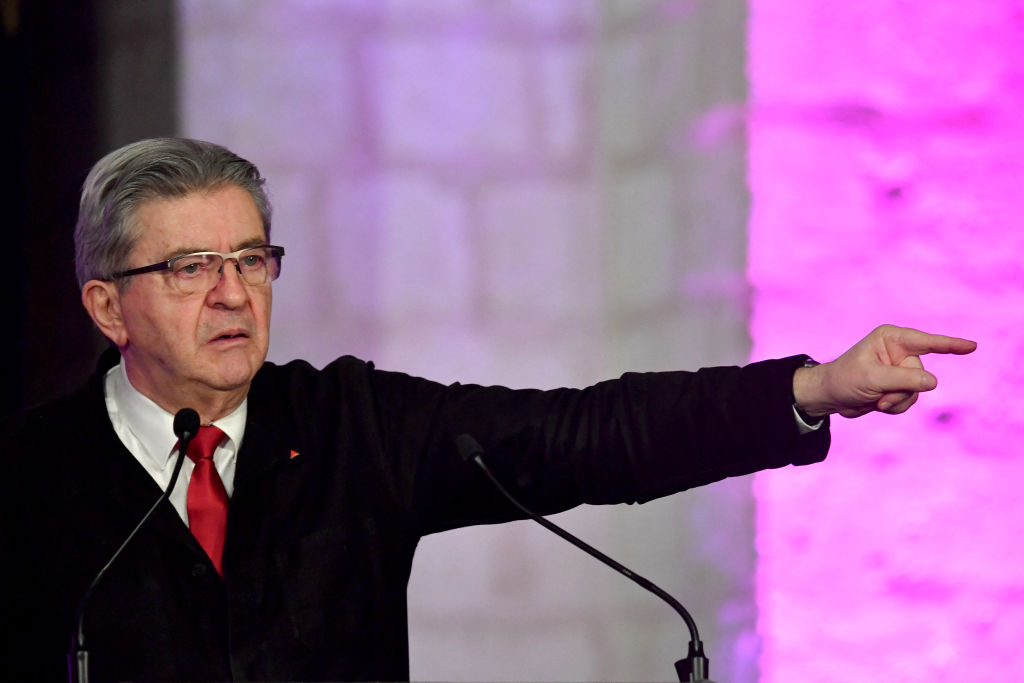When Jean-Marie Le Pen referred to the Holocaust as a “detail” of the Second World War in 1987, he probably didn’t know that it would cast a dark shadow over his party, the Front National. For decades, accusations of antisemitism played a large role in his political marginalisation — accusations which he never did much to brush away.
Nearly four decades later, his granddaughter Marion Maréchal and the leader of the rechristened Rassemblement National Jordan Bardella have both headed to Israel at the invitation of Israel’s Minister of Diaspora Affairs, Amichai Chikli.
The two nationalist leaders visited some of the areas targeted during the Hamas terrorist attacks of 7 October 2023, and warned against the rise of antisemitism. Bardella was quick to point out that France and Israel were both victims of “Islamic fundamentalism”, the “biggest threat” they face. The parallels between the attack on the Nova festival in Israel in 2023 and the Bataclan in Paris in 2015 are obvious to many French citizens. It is with this shared sense of danger that Bardella is trying to appeal to his Jewish compatriots.
Pilgrimages to Israel and meetings with Israeli leaders are common in nationalist European politics. Hungary’s Viktor Orbán has met Benjamin Netanyahu several times, while Geert Wilders from the Netherlands has met and lavishly praised the Israeli Prime Minister.
In France, Marine Le Pen went further and purged from the RN ranks any members deemed to be too toxic, starting with her own father, who was expelled in 2015 after reiterating his infamous “point of detail” argument.
In her efforts to clean up the party, she has been helped by an unlikely ally: La France Insoumise, the radical Left party of Jean-Luc Mélenchon. Over the last few years, and even more so since the 7 October attacks, Mélenchon and his allies have refused to condemn Hamas as a terrorist organisation and engaged in antisemitic dogwhistles, such as leaning on stereotypes about Jews and banking.
The staunch defence of Palestine has largely paid off politically in France’s suburbs, which host large Muslim communities. On the flip side, however, a staggering 92% of French Jews now consider La France Insoumise to be a driver of antisemitism, well ahead of the RN at 49%. Even the centre-left publication Le Monde ran an editorial blasting Mélenchon for his party’s use of antisemitic tropes.
The consequence of this is that many French Jews, if forced to choose between Mélenchon and Le Pen, are willing to look past the RN’s unseemly past. Take Serge Klarsfeld, the “Nazi-hunter” who discovered that Adolf Eichmann was in Argentina. “Marine Le Pen is the head of a party which supports Israel and supports the Jews,” he said last year. “So we gave this advice to those who will be faced with this runoff between the far-Left and what used to be the far-Right, which for us is now a populist party, to vote for the Right.”
Bardella’s trip to Israel this week also reflects a larger evolution in France, and in much of Europe, of nationalist politics. Now presenting themselves as muscular defenders of standard liberal values against the external threat of Islamism, the old battles of the traditionalist Right against Jews and sexual minorities are in the rear-view mirror. In fact, many of Le Pen’s arguments against mass migration are framed as a protection of women’s rights, freedom of speech and the defence of minorities.
The normalisation continues, as Bardella visits Yad Vashem, Israel’s official Holocaust memorial. His break from Jean-Marie Le Pen’s reticence about the Holocaust could not be more pronounced. “The concentration camps were the height of barbarism,” he posted on Wednesday. As political chaos continues to engulf a splintered French parliament without a majority, Bardella’s party has worked hard to remove any electoral barriers. Israel, clearly, is an important stop on the RN’s road to the Elysée.










Join the discussion
Join like minded readers that support our journalism by becoming a paid subscriber
To join the discussion in the comments, become a paid subscriber.
Join like minded readers that support our journalism, read unlimited articles and enjoy other subscriber-only benefits.
Subscribe